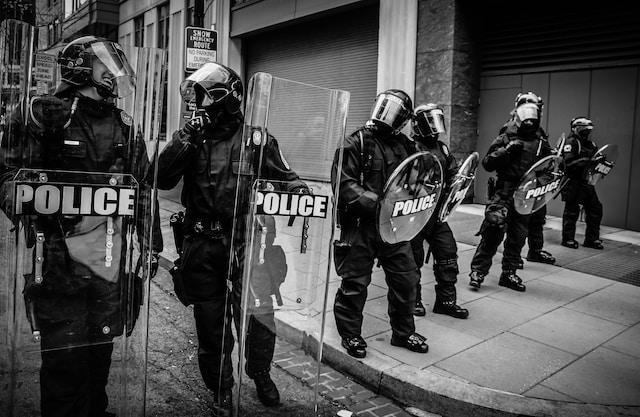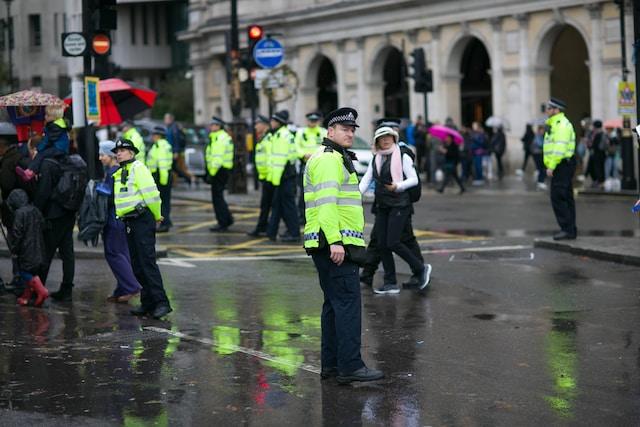How to Get a Copy of a Police Report
Our product recommendations are made independently, but we may earn affiliate commissions if you use a link on this page.
Police reports play a critical role in various aspects of life, from insurance claims to legal proceedings. Obtaining a copy of a police report can provide valuable information and evidence to help you navigate these situations more effectively.
This article aims to guide you through the process of obtaining a copy of a police report, covering key aspects such as understanding what a police report is and why you might need one, who can access these reports, and the steps to take when requesting a copy from the police department.

What is a Police Report and Why Might You Need One?
A police report is an official document generated by a law enforcement officer in response to an incident, such as a crime, traffic accident, or any other event that requires police intervention. This document typically includes essential details about the incident, such as the names of the parties involved, a description of what transpired, the date and time of occurrence, the location, and any actions taken by the police officer.
The report may also contain witness statements, evidence collected, and any other relevant information. Police reports serve as a crucial tool for law enforcement agencies to maintain accurate records of incidents and as a basis for further investigations, if necessary.
There are several reasons why an individual might need a copy of a police report. If you are a victim of a crime or involved in a traffic accident, obtaining a copy of the report can be helpful for insurance claims, as insurers often require an official police report to process a claim.
Similarly, if you are pursuing legal action against another party, a police report can serve as a valuable piece of evidence to support your case. In some instances, individuals may also need a copy of a police report for personal documentation, background checks, or other administrative purposes.
Who Can Access a Police Report?
Access to police reports may vary depending on the jurisdiction, the nature of the incident, and the specific details contained within the report. In general, police reports are considered public records, which means that they are accessible to the public in accordance with the laws governing public access to information.
However, there are exceptions to this rule, and certain types of police reports or specific information within them may be restricted from public disclosure due to privacy concerns or ongoing investigations.
Typically, parties directly involved in the incident, such as victims, witnesses, or those accused, have the right to access the police report related to their case. Additionally, legal representatives, insurance companies, and other entities with a legitimate interest in the information may also be granted access.
It is worth noting that access to some sections of a police report may be redacted or limited if they contain sensitive information, such as personal identifying details or information that could compromise an ongoing investigation.

The Importance of a Police Report in Legal Proceedings
A police report can play a significant role in legal proceedings, serving as a valuable source of information and evidence for parties involved in a case. This official document provides an objective account of the incident from the perspective of a law enforcement officer, which can lend credibility to the narrative presented in court.
The details contained within the report, such as the names of parties involved, the sequence of events, witness statements, and any evidence collected, can help establish the facts of the case and corroborate or contradict claims made by the parties.
In both civil and criminal cases, a police report can be a critical piece of evidence that aids in building a strong case. For instance, in personal injury lawsuits or insurance disputes resulting from a traffic accident, the police report can help determine fault and the extent of damages. Similarly, in criminal cases, the report can provide crucial details that contribute to establishing guilt or innocence.
However, it is important to note that a police report is not infallible and may contain errors or omissions. As such, it should be used in conjunction with other forms of evidence and witness testimony to ensure a comprehensive understanding of the incident.
How to Request a Copy of a Police Report from the Police Department
To request a copy of a police report from the police department, the first step is to identify the appropriate law enforcement agency that handled the incident. This could be your local police department, a county sheriff's office, or a state police agency, depending on the jurisdiction in which the incident took place.
Once you have determined the responsible agency, visit their website or contact their records division to obtain information about their specific procedures and requirements for requesting a copy of a police report. Some agencies may have online request forms, while others might require a written request or an in-person visit to their offices.
When submitting your request, be prepared to provide pertinent details about the incident, such as the case number (if available), the date and time of the event, the location, and the names of the parties involved. Additionally, you may need to present a valid government-issued identification to verify your identity and your relationship to the incident. This is particularly important if the report contains sensitive or confidential information.
There might be fees associated with obtaining a copy of a police report, which can vary depending on the agency and the length of the report. Once you have submitted your request and paid any required fees, the processing time can vary from a few days to several weeks, depending on the agency's workload and the complexity of the report. Be sure to follow up with the records division if you encounter any issues or delays in receiving your requested copy.

What Information is Needed to Request a Police Report?
When requesting a police report, it is essential to provide as much accurate information as possible to facilitate the retrieval of the correct document from the law enforcement agency's records. While the specific requirements may vary between jurisdictions and agencies, certain pieces of information are commonly needed to help locate the report in question.
These include the case number or incident number, which is a unique identifier assigned to each report by the law enforcement agency. If you do not have the case number, providing other relevant details can still be helpful in tracking down the report.
These additional details can consist of the date and time of the incident, the location where it took place, and the names of the parties involved, such as victims, witnesses, or alleged perpetrators. In some cases, providing a brief description of the incident can also aid in locating the correct report. It's essential to be as precise as possible when providing this information to minimize the risk of confusion or misidentification of the report.
Keep in mind that some agencies may also require proof of your identity or your relationship to the incident before granting access to the police report. Be prepared to present a valid government-issued identification or any other documentation that supports your request.
How Long Does it Take to Get a Copy of a Police Report?
The time it takes to obtain a copy of a police report can vary widely depending on several factors, including the specific law enforcement agency responsible for the report, their workload, and the complexity of the report in question.
Some agencies may process requests relatively quickly, while others could take several days or even weeks to provide a copy of the report. It is important to keep in mind that certain times of the year may see an increased volume of requests, which can contribute to longer processing times.
To ensure you receive your requested copy in a timely manner, it is crucial to submit your request as soon as possible after the incident and provide all the necessary information and documentation required by the law enforcement agency.
Following up with the records division to check on the status of your request can also be helpful in preventing unnecessary delays. If time is of the essence, some agencies may offer expedited processing options for an additional fee. In any case, it is essential to be patient and respectful when interacting with law enforcement personnel, as they are often working on multiple cases and requests simultaneously.
Understanding the importance of police reports and knowing how to obtain a copy when needed can be crucial in various circumstances. By familiarizing yourself with the process, you can ensure that you have the necessary documentation and evidence to support your case or claim.
Always remember that specific procedures and requirements may vary between jurisdictions and law enforcement agencies, so it is essential to research and follow the guidelines set by the relevant authority. With persistence and the right information, you can successfully access the police report you need to help you navigate the challenges you may encounter in legal or administrative matters.
Reference Legal Explanations
If you use any of the definitions, information, or data presented on Legal Explanations, please copy the link or reference below to properly credit us as the reference source. Thank you!
-
<a href="https://legal-explanations.com/blog/how-to-get-a-copy-of-a-police-report/">How to Get a Copy of a Police Report</a>
-
"How to Get a Copy of a Police Report". Legal Explanations. Accessed on December 15, 2024. https://legal-explanations.com/blog/how-to-get-a-copy-of-a-police-report/.
-
"How to Get a Copy of a Police Report". Legal Explanations, https://legal-explanations.com/blog/how-to-get-a-copy-of-a-police-report/. Accessed 15 December, 2024
-
How to Get a Copy of a Police Report. Legal Explanations. Retrieved from https://legal-explanations.com/blog/how-to-get-a-copy-of-a-police-report/.